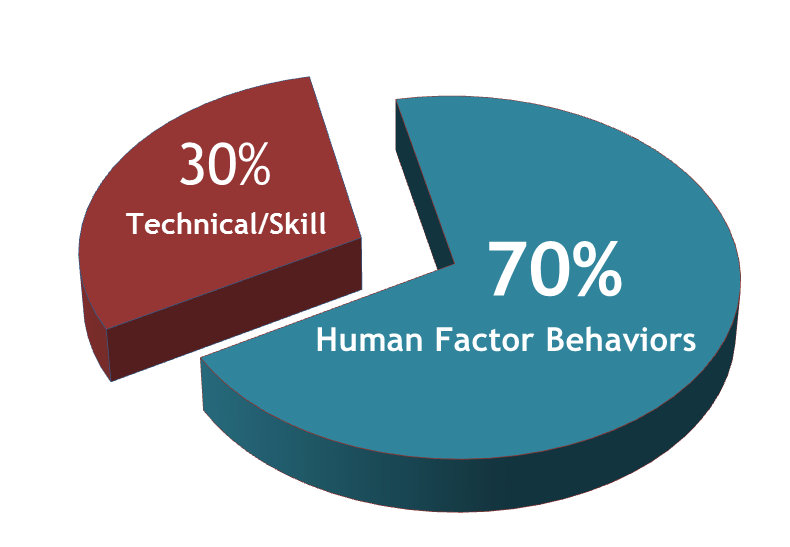
Unveiling the Power of Job Success Profiles
In previous newsletters, we have suggested that hiring those “minimally qualified” or identifying those appropriate for training takes an accurate job success profile.
Decoding Job Success: Beyond Minimum Qualifications
What are the actual job behaviors that account for variance in performance outcomes? What makes my “best” employees so good? What are they doing or not doing that sets them apart from their barely acceptable counterparts? Remember, minimum qualifications tell you who you can hire, but they do not tell you who you should hire. Job success profiles should necessarily incorporate skill sets but must also contain the other seventy percent of non-technical behaviors (some call these soft skills).
The Quest for Comprehensive Success Profiles
Too often, companies need to learn what they are looking for beyond some level of technical competency, a CDL, or a particular score on a skills-knowledge test, or graduation from a technical program. Their focus has been on skills or credentials with little to no way to look at the other behaviors that distinguish superior performers from the rest of those who are minimally qualified. They need a complete job success profile to measure the applicants systematically. At best, they are working off some job description. A job description describes what all or most of the job incumbents do but does not identify which job behaviors distinguish between top performers and the rest of the pack. Not only do the presence or absence of these high-performance behaviors differentiate between your best and worst drivers, but they also create trouble on the job if they are absent.
Key Criteria for High-Performance Behaviors
It takes two things to be a high-performance behavior that success profiles are based on:
- Your “best” drivers do it, and your “worst” drivers don’t, and
- There is trouble on the job if the behavior is missing. These behaviors predict variation in job performance, which you should check for when you hire someone or identify them as training candidates for technical training.
Unlocking the Secrets of Top Performers
Management can sometimes be surprised by how their “best” performers do the job efficiently and effectively. Some job behaviors management may think necessary for success in the position may be considered less important, sometimes far less important, by those considered to be among the “best.” The only way to get this kind of information is to sit down with their “best” performers and find out from them how they actually do their job and how they do it so well.
The Crucial Role of Success Profiles in Selection and Training
A job success profile is essential for selection from those who are minimally qualified or certified. It is also crucial for selection into training programs that primarily emphasize hard-skill behaviors. It is possible to teach people the technical, but it is almost impossible to teach them the other behaviors required for success on the job. Hiring for the behaviors and training for the skills is much easier.
The Interviewing Challenge
Interviewing becomes almost useless without a success profile of the whole job (not just the technical). It is little wonder that all of the literature suggests that the average interview is, at best, a 50/50 proposition (often, it is less than that since we frequently find ourselves trying to choose between two people, neither of whom is very good). The interview doesn’t need to occur; flip a coin, and the accuracy is the same.
Elevating Interviewing with Success Profiles
The odds go up in the hands of people with some training and experience. However, without a success profile, it is still very subjective. A whole industry has grown up around teaching people how to pass interviews. The hiring authority needs to find out whether they are dealing with the “real” the “trained” person. Additionally, interviewing behavior is different from job behavior. While some people interview well, their job performance could be better and vice-versa. The more obtuse the interview questions become to combat the seminar-trained applicant, the farther away they get from the applicants’ ability to do the job and do it well.
The Guiding Principle: Hire for Behaviors, Train for Skills
Remember, whether selection for employment or selection for training programs, hire for the behaviors, train for the skills. The behaviors you select should reflect the success profile that includes the whole job and not just the technical.
Conclusion: The Path to Informed Hiring and Training
In the realm of hiring and training, job success profiles are the compass that guides organizations toward informed decisions. By understanding the critical behaviors that set top performers apart and integrating these insights into the selection and training processes, companies can unlock the full potential of their workforce, ultimately driving success and excellence in their operations.
Unlocking Potential with Scheig Solutions
Scheig Solutions develops job-specific pre-employment assessments, interview questions, and performance evaluations designed to identify applicants who are a good match for the job. They have programs specifically designed for motorcoach drivers, school bus drivers, and diesel technicians. They have been in business for over 30 years as recognized leading providers of behaviorally based hiring tools.
For more information, contact Chris Fisher at (800) 999-8582 or visit www.scheig.com.



